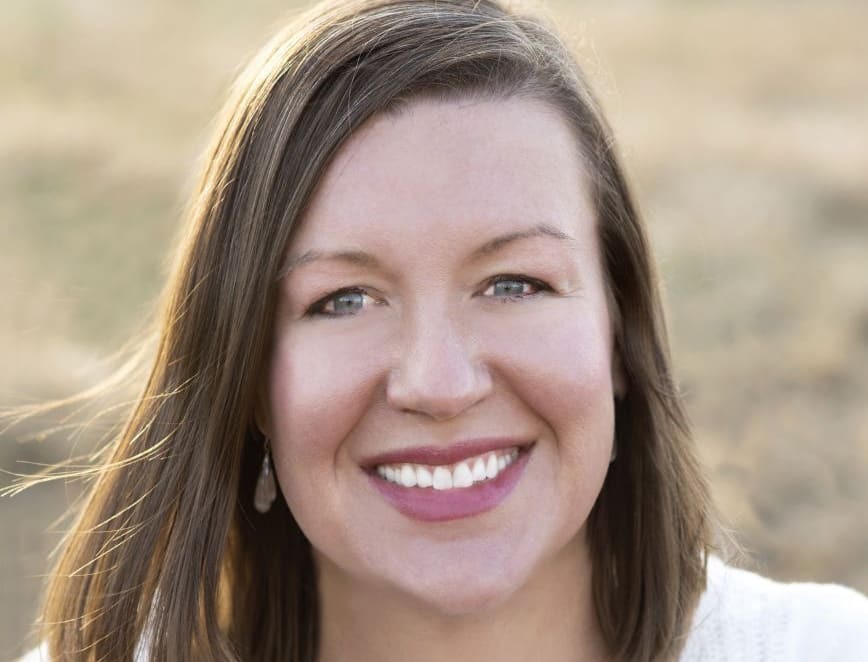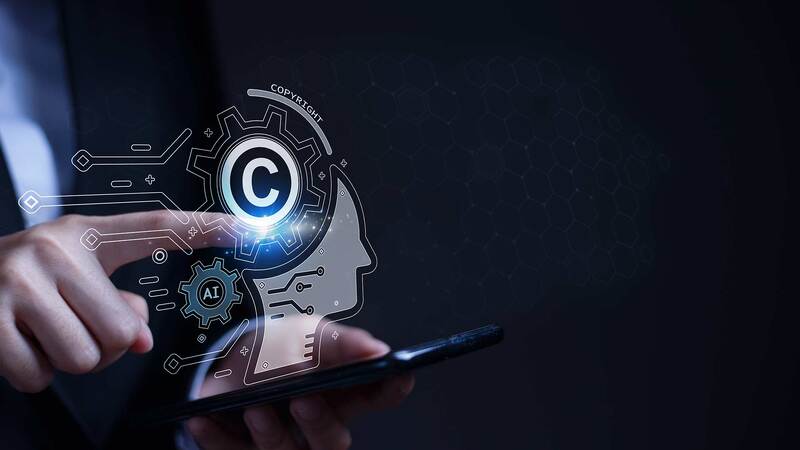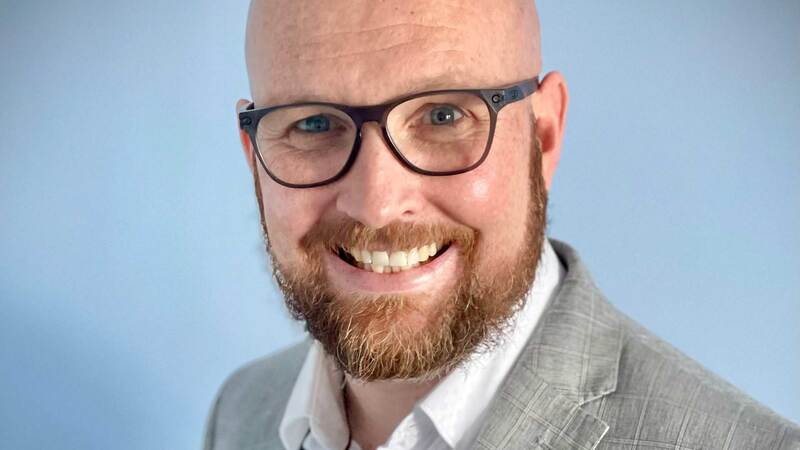You are viewing your 1 free article this month. Login to read more articles.
Annie Grace | 'It doesn't have to be all or nothing'

Caroline Sanderson is a non-fiction writer, editor and books journalist. Her books include a travel narrative, A Rambling Fancy: in the F ...more
 Caroline Sanderson
Caroline SandersonCaroline Sanderson is a non-fiction writer, editor and books journalist. Her books include a travel narrative, A Rambling Fancy: in the F ...more
After drinking two vodka and orange juices in her London hotel bar at 6 a.m., just before leaving to fly home to Colorado from a business trip, a hungover Annie Grace sat on the Heathrow Express and wrote in her journal: "Something has to change here." Recalling the moment down the line from the US five years later, Grace tells me that she had been trying to stop drinking at the time, or at least to cut back. "But instead I was thinking about alcohol constantly, and actually drinking even more than before."
Along with eating vegan, the other clear trend amid 2019’s New You, New Year publishing is giving up alcohol. There’s even the first official guide to Dry January, Try Dry. But Grace’s The Alcohol Experiment: 30 Days to Take Control, Cut Down or Give Up for Good goes further and helps you rethink your whole relationship with alcohol, not just for January, but for life. While not suitable for anyone with a strong physical addiction, it is ideal for the much larger number of us who want to drink less or even give up altogether, but who find life too stressful to do without, or who feel deprived, upset or even just deadly dull when we abstain.
Grace’s own drinking only began in earnest once she found career success. She grew up in a one-room cabin in the mountains of Colorado with parents who didn’t drink alcohol at all. Grace drank moderately through college, but it was when she started in a marketing role for a large foreign exchange company in New York that her exposure to what she calls the "corporate drinking lifestyle" began.
"It was a very heavy drinking company. At first, I’d go to my hotel room at the end of the working day on business trips and watch TV. Then my boss said: ‘Hey, why aren’t you showing up at the bar? That’s where ideas get pitched; it’s like the golf course of corporate America.’" So Grace showed up at the bar, and by the age of 26 (she’s now 40), she had become the company’s youngest vice-president. She was also routinely making herself throw up in the toilet during corporate drinking sessions so she could carry on imbibing.
The parent trap
By this time, Grace had also taken her drinking habit home with her, winding down after a stressful day not by walking or going for a run, but by opening a bottle of wine—and then another. Her drinking really embedded itself once she had her three children, a phenomenon that many of us who are parents will recognise. "When I was pregnant, I gave up alcohol no problem, but I also felt deprived the whole time. So when the baby was born, I was like: all right! I can drink again!"
You may be expecting to read that Grace immediately gave up alcohol forever at this point. But the interesting thing is: she didn’t. Instead she resolved on a year-long journey of "facts, neuroscience and logic", during which she tried to figure out how and why her relationship with alcohol had changed so much, reading every piece of research she could lay her hands on about its physiological and psychological effects. What she discovered made her determined both to stop drinking, and to share what she’d learned. She converted the text of the journals where she’d recorded all her findings—"messy and with millions of typos"—into a PDF and made it available for free through a webpage. Within two weeks, 20,000 people had downloaded it. "It just went completely nuts. I started getting letters from all over the world from people telling me I was changing their lives."
The response spurred Grace to write it all up in a better format, particularly after the chance came to take voluntary redundancy from her employer. The result was her self-published book, This Naked Mind, which sold so well it attracted interest from five major US publishers and was acquired by Penguin USA health and wellbeing imprint Avery. Grace’s story was subsequently featured across the US media, including on "Good Morning America". I read the book after it was published by HQ in the UK in early 2018, and immediately gave up drinking for two months, a decision that has led me to more moderate and mindful alcohol consumption.
The Annie Grace method for rethinking your drinking, outlined even more accessibly in The Alcohol Experiment, and supported via her online community AlcoholExperiment.com, involves 30 days of "tough love", during which you take a break from drinking while Grace helps you review the psychological evidence about your perceived need for alcohol. This process does, I’m afraid, include scary statistics about its dangers. Grace discovered that the number of scientific studies detailing alcohol’s harmful effects outnumber those which talk up its benefits to a "terrifying" degree. "It felt like being in the middle of ‘The Matrix’, and then waking up and thinking—how do we not know this?"
It’s often the strongest, smartest and most successful people who drink more than they should
The Alcohol Experiment also details the effects of alcohol on the brain, and unpicks at length the deep social conditioning and consequent cognitive dissonance which leads many of us to believe that we need alcohol to relax, destress, socialise, be interesting, and even to be happy. This might make Grace appear preachy, but she isn’t in the least, either in print or in person. In fact, she urges us to cut ourselves some slack. "People who can’t control their drinking are not weak-willed," she writes. "It’s often the strongest, smartest and most successful people who drink more than they should."
Forbidden fruit
While Grace’s 30-day experiment may, on the face of it, sound little different to going Dry for January, there is a fundamental difference. "Dry January and Sober October, for most of us, almost make drinking for the rest of the year worse. Forbidden fruit syndrome kicks in and all of a sudden, you’re counting down the days until you can drink again, just like I did when I was pregnant. You white-knuckle it for 31 days (which, by the way, almost anyone can do) but nothing actually changes because you haven’t gone into all the reasons why you drink in the first place."
Grace believes the option of moderate drinking always remains open to us. "It doesn’t have to be all or nothing. We don’t say: ‘You have to exercise 365 days a year otherwise you’re not an exerciser.’" Once you are truly informed about alcohol, the path you choose is entirely up to you, she argues. "You might decide to drink while on vacation and then stop again for a couple of months. It’s not a lifelong commitment." The path Grace has chosen, however, is not to drink at all. "My goal was to make alcohol irrelevant in my life—a total non-issue. For me moderation means constantly having to make decisions about whether or not to drink, and that’s more tiring and stressful in the end. Once I no longer wanted to put alcohol in my body, moderation was no longer a decision I had to make. It took a journey to get to that point. But once I got there, I’ve never looked back."
Book extract
One of the most interesting things I’ve found in my years of research is just how many people want to change their drinking.
I thought I was alone. I thought I was the only one who was questioning their drinking habits. Nothing could be further from the truth! It’s not that we are alone. It’s that society has made alcohol a taboo topic, even among our closest friends.
An honest conversation around drinking seems to invite judgement. And yet think about this, out of the people you know who drink alcohol regularly, how many of them have said something like, "I overdid it last night", or "After last night I am never drinking again" at some time or another? Almost everyone, right? I know for me almost everyone I know, and certainly everyone I drank with, wanted to change their drinking at some point to some degree.
So you are not alone in wondering about this topic. You are in the vast majority.









